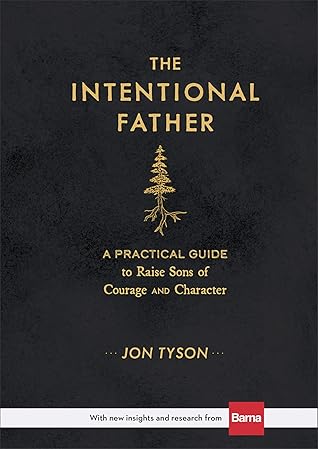More on this book
Community
Kindle Notes & Highlights
by
Jon Tyson
When a father is present, emotionally healthy, and involved in his child’s life, the child has a tremendous advantage in the world to navigate its complexities and challenges with joy and confidence.
“Risk unleashes worlds of possibility and even paves the way for other people’s destinies. Learn to step into it. Learn to embrace it.”
Formation happens day by day; distortion happens day by day. We are either helping our sons move into adulthood or joining the culture’s attempt to trap them in an extended adolescence. There’s a phrase my son would use when he saw older men who weren’t leaning into their full potential: man-agers. They were like teenagers in a man’s body, chronologically and biologically adult but still acting like adolescents. This movement into adulthood won’t happen by accident.
Instead of saying, “Life is hard,” I said, “It’s a shift from ease to difficulty.” Instead of saying, “You’re not important,” I said, “Boys care about themselves, but men care about others.” Instead of saying, “Your life is not about you,” I said, “You’re part of the story, but you’re not the whole story.” Instead of saying, “You’re not in control,” I said, “It’s a shift from control to surrender.” Instead of saying, “You’re going to die,” I said, “It’s a shift from the temporary to the eternal.”
Moments mark us. They matter. And because of the way our brains work, the moments that take place in our late teens and early twenties are moments we remember more than other times of our lives. We give a disproportionate weight to them.
I do, you watch, we talk. I do, you help, we talk. You do, I help, we talk. You do, I watch, we talk. You do, someone else watches.
Raising a son is real work, but we have to get this right, because if we don’t teach our sons, the world will.
How many men do you know who are passive, who let others go first, who hang back and wait to see what’s going to happen? We talked about the importance of rejecting passivity and taking the lead. The key insight to impart here is that passivity leads to pain. Life will keep moving forward, and choosing to do nothing is as large a decision with real-world consequences as choosing to take action.
This is one reason I think you have to be careful about how much your son plays video games—they are very good at providing a false sense of accomplishment.
Do what you can. Do something. Be intentional. Make it consistent, and stick with it. Find a rhythm that works for you. I will say that once a month is not enough, and once a week is probably not enough either. We live in a world bombarding us with information every single moment of the day—I think it’s going to take more than weekly meetings to make a difference.
This seems like a lot of work. I’m not sure I can commit to all of this. Don’t be overwhelmed. You can do this. Do what you can, not what you can’t. Be consistent. Be purposeful.


